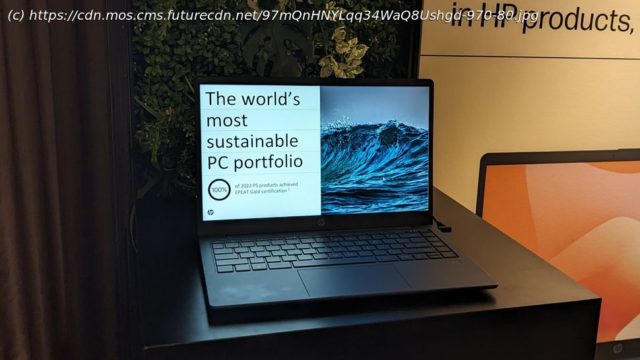The company also wants to pay you for your old tech
Tech companies like to talk about how they’re going to play an integral role in shaping a better future, but for an industry at the forefront of industrial capabilities, there really hasn’t been much development in environmentally friendly products… at least not in terms of obvious company wide shifts.
I was recently at HP’s Future Ready Conference in Tokyo where the company was keen to highlight its sustainability goals, giving us an insight into what environmentally-conscious tech looks like. As someone with a Masters degree in Environmental Management, this is a topic close to my heart and, while it’s encouraging to hear that more and more tech companies are trying to go green, a lot of it ends up seeming like marketing material rather than meaningful progress.
So what exactly is different about HP’s eco-friendly goals and products that hasn’t been seen in Acer, Apple, Asus, Dell, Lenovo or MSI’s laptops? Well, as I’ll discuss later, it’s got some of the most ambitious carbon emissions goals in the industry: a benchmark that pushes the company to be 5, 10 or even 20 years ahead of competitors in transitioning to less impactful products.
But it’s not just carbon emissions, HP is leading the tech space in product design that incorporates recycled materials, using less harmful manufacturing processes wherever possible, and thinking about the full lifecycle of products in ways that reduce waste and promote digital equity.
When you move away from greenwashed products that do one thing exceptionally well or incorporate an eye grabbing eco element, it’s actually really complex to communicate how a company is more environmentally friendly than a competitor. But whether it’s accolades like America’s Most Responsible Company for the last four years running according to Newsweek, inclusion in the 2023 Global – 100 Most Sustainable Corporation list, or ninth place in the Clean 200 2023 clean revenue ranking (behind TSMC and Apple), it’s clear that HP is making a genuine attempt to achieve its goal of being “the most sustainable technology company”. Say hello to the ‘most recycled-material laptop’
HP has recently launched what it calls the “the World’s most sustainable PC portfolio” in the US which includes a new laptop that offers third-party certification for including “more recycled content used in more components than any other competitor PC in its class”.
The HP 14-inch Laptop Eco Edition is currently only available in the US, but the product is slated for global launch according to HP, even though there’s no official timeline yet. Personally, I’m pretty excited by the prospect of a device that contains 50% recycled aluminum, 25% system-level recycled plastics, 100% water-based keyboard paint and EPEAT (Electronic Product Environmental Assessment Tool) Gold certification.
This kind of product-wide use of recycled materials is not easy to achieve. HP’s Senior VP of Personal Systems and Design for Sustainability, Stacey Wolff, told TechRadar that the company began integrating sustainability positions into the core product design team three years ago – an organizational shift that allowed the team to build two core products that are at the forefront of HP’s latest consumer-facing offering and feature distinct improvements in use of renewable materials.
While the HP 14-inch Laptop Eco Edition is ‘segment leading’ in terms of recycled material, Wolff explained that laptops are a more difficult challenge for sustainable product design due to their increased durability requirements – something I, as a seasoned laptop reviewer, was concerned about when learning that the HP 14-inch Laptop Eco Edition’s keyboard scissors are made entirely from renewable feedstock.
But Wolff reiterated that longevity (and serviceability) are fundamental to HP’s sustainability goals and that the company aims to sell these products in markets that actually enforce extensive warranty periods and repairability standards.
Домой
United States
USA — software Ocean-bound plastic, cooking oil and coffee grounds: HP’s new eco-friendly PCs are...






